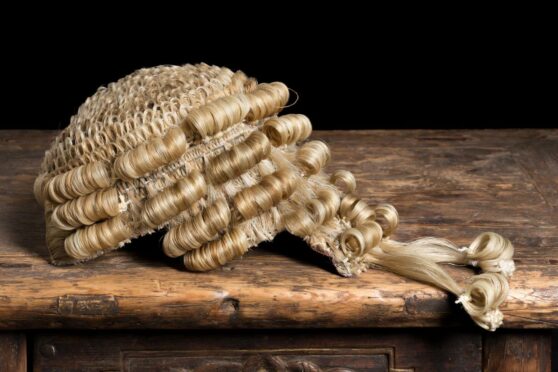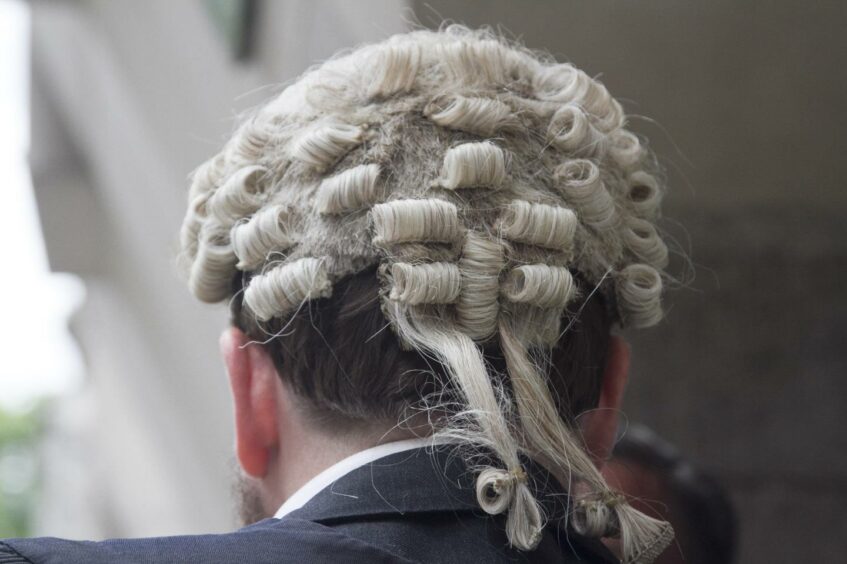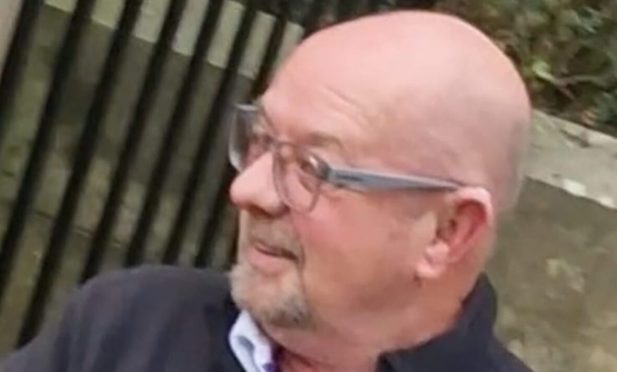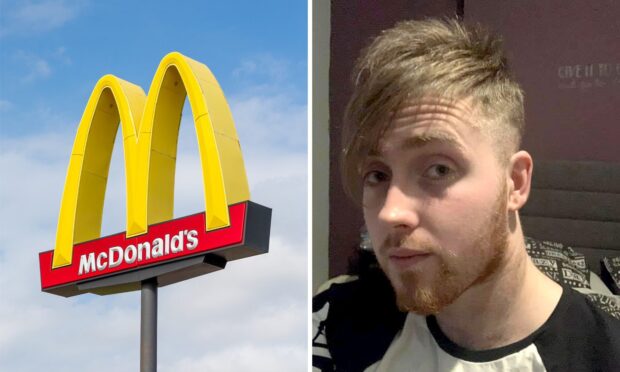In what has been described as a crisis for Scotland’s courts, lawyers across the country have removed themselves from the local duty solicitor scheme.
From this week, private legal firms – which previously providing cover on a rota basis at some of the country’s busiest courts, including in Tayside and Fife – will no longer take part.
Legislation says the Scottish Legal Aid Board (SLAB) has an “obligation to make a duty solicitor available” to those who need one.
Until now, the board would offer legal aid “rates” for those taking part, which are variable, depending on the crime.
Private firms say these rates are “too low”, with one Fife lawyer pointing out inflation and a change in the structure means solicitors now earn less for the same type of case than they would have at the turn of the Millennium.
Why should we care?
Duty solicitors are on the front line of providing legal advice.
Those who find themselves in court, whether in custody or through an undertaking to appear, need legal representation.
It’s not cheap so legal aid can help.
If solicitors will not accept the legal aid rate and refuse to appear, some of the most vulnerable in society could be left without expert help – not an enticing prospect in the complicated and often archaic court system.
Put bluntly, without solicitors, there is no functioning legal system.
Why are lawyers ‘boycotting’?
Essentially, a lack of pay and a worrying lack of staff are causing an intolerable workload.
Young, would-be trainees are shunning criminal defence for other, more lucrative, options.
One Dundee lawyer said: “It’s getting harder to recruit — if you look around Scottish court rooms at the moment the vast majority of defence solicitors have been in the game a long time – there is no-one new coming through.
“It can be difficult to garner public sympathy for defence lawyers. No-one feels particularly sorry for us.”
A Fife solicitor cited “exceptional workloads and pressures” and “a long term, generational lack of investment in the legal aid system” by successive governments.
He said: “Many younger lawyers who have been trained by solicitors’ firms are now leaving private practice for other areas of work with better pay and work/ life balance.
“Ironically, many have left to work for the publicly funded Prosecution service, Child Abuse inquiry, Scottish Social Services Council etc. where there has been considerable Scottish Government investment in recent years.”
So the long hours, relatively low pay and the optics of defending what some misconstrue as the indefensible, contribute.
But don’t solicitors earn fortunes?
A criminal defence trainee earns, on average, around £19,500 a year.
The work is hard, the hours long and the clients can be understandably difficult.
Criminal defence lawyers have defined court roles but can serve almost like surrogate social workers to their clients.
Often, it is the solicitor alone who knows what the defendant has been doing with themselves – particularly “frequent flyers” with chaotic lifestyles.
A trainee public prosecutor (procurator fiscal) gets £26,665 in their first year and £31,000 in year two.
A trainee teacher in Scotland could expect to earn £27,500 on their probationary year.
A junior doctor gets as much as £29,000.
So the Govt is to blame? What’s it saying?
In 2020, we reported the – to some – rather incredible government belief the drop in numbers of criminal defence lawyers was due to a “decrease in crime”.
The Faculty of Advocates, for one, decried then-community safety minister Ash Denham’s comments as “total nonsense”.
The SNP government said it has increased spending in legal aid in incremental amounts.
Some argue this has not been in line with inflation.
A Scottish government spokesperson said recently: “We have provided a 5% increase in legal aid fees in 2021, plus a further 5% increase this year, to be delivered shortly.
“In addition, we have provided £9 million in additional funding to the profession in the context of the Covid-19 pandemic, as well as establishing a £1m fund to support traineeships.
“This amounts to a £20m investment in legal aid since March 2021 in addition to a 3% uplift across all legal aid fees in 2019.”
So just increase the funding?
It’s not just how much money government funnels into the profession which matters.
In 1999, a fixed payment system of legal aid was introduced, depending on the type of cases being dealt with.
Our Fife source said subsequent changes and public finance austerity measures mean less is being paid now, than for an equivalent case in 1999 – indeed, in some instances than in 1992.
“There has been no increase to reflect inflation and increasing costs over these three decades.
“Put simply, the level of salary that can be offered to newly qualified solicitors is not competitive and the profit margins of many of our business are being reduced as costs continue to increase.
“The only way for many to survive and continue to function is to seek to take on more cases.
“This increased workload, which is also affected by the lack of available lawyers to conduct cases, results in huge stress on individual lawyers as well as a diminished service to the clients and the justice system.”
Add to that changes to the law itself, including the rights of accused persons to receive advice while in police custody and evidential changes to the way vulnerable witnesses give evidence – including children and alleged victims of sexual and domestic abuse – and the increased use of identification parades.
The lawyer says: “No enhancement of fees has been introduced to reflect these additional extra commitments.
“The extra time involved, often in the middle of the night, results simply in payments being made for the time spent rather than an effectively funded on-call duty scheme, as would be expected in other public services.
“With the hours required to be worked at relatively low salaries, it is hardly a surprise that there is a staffing crisis in the criminal bar.”
What happens now?
Those who require a solicitor, funded through legal aid, should be seen.
The Public Defence Solicitors’ Office (PDSO) has 23 solicitors available to cover the whole country.
But there are no PDSO offices in the north east of Scotland, meaning all consultations are being carried out remotely.
The SLAB said it would utilise techniques used in the pandemic, including remote meetings, to see to those in need of defence.
Where private lawyers have withdrawn from the duty scheme, the SLAB say there will be “alternative arrangements” in place.

A spokesperson said: “We arrange for duty solicitors to be available in each sheriff and Justice of the Peace court, at all times throughout the year.
“We are aware that a significant number of private solicitors in Dundee, Forfar, Kirkcaldy and Dunfermline will be boycotting the court duty scheme from the start of March onwards.
“Planning is under way to ensure that duty solicitor services continue in these areas and plans will be issued in due course.”
And the ultimate solution is…?
The Fife solicitor said: “The problem is not going to be solved overnight but the solution is simple.
“There needs to be a substantial increase in legal aid funding to stem the reduction in numbers of lawyers willing to carry out this role.
“The majority of criminal defence solicitors are over 45 years old and the lost generation is being back filled by trainees who do not have the experience to handle the complex cases in court.
“These older solicitors will soon retire through age, disillusionment and stress-related health issues.
“The loss of their numbers and experience will create a massive hole.
“Scotland was once proud of it’s justice system and often it was held up as a model to the rest of the world.
“The loss of an independent criminal defence bar to protect the rights of persons accused by the state of alleged criminal offences by providing access to justice and protecting the fairness and efficiency of the system would be a shameful reflection on those in charge of the country.”













